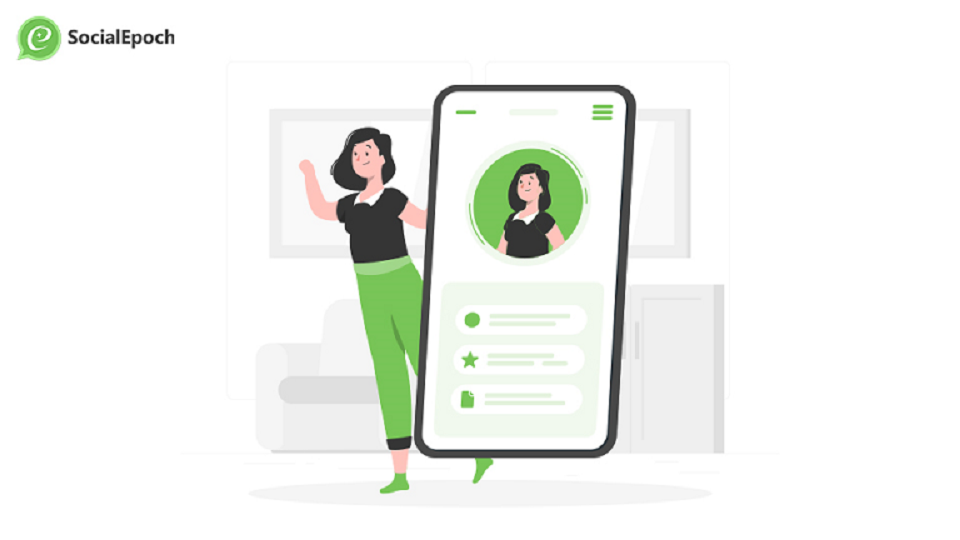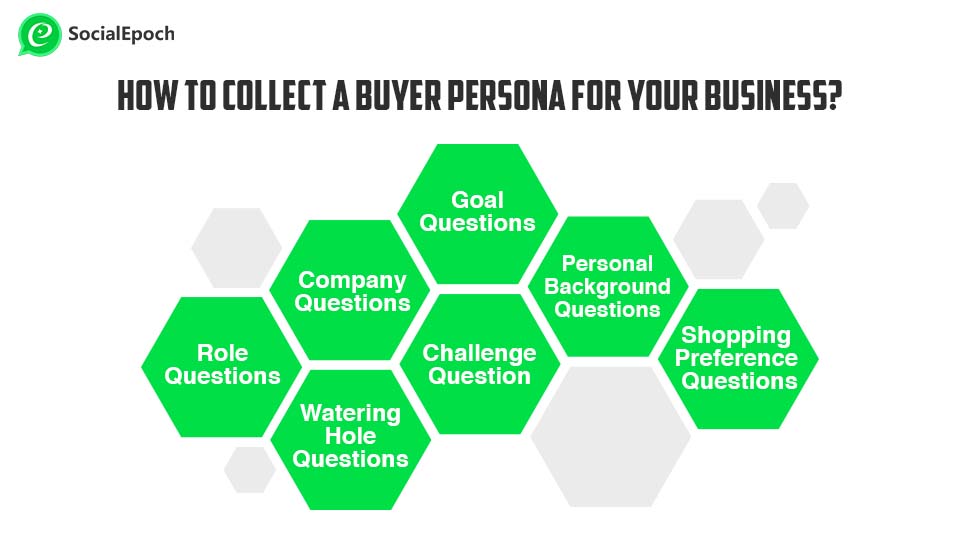Social media marketing is a purely content-driven strategy and required a thorough understanding of its target audience. The same marketing approach may have different results among different groups of audience based on their buyer persona which consists of their age, profession, demographics, interests, and more. By knowing the exact points of interest for their future customer, businesses can generate huge leads and maintain high retention rates with minimal marketing efforts.
As a business, how does one know about the interests, likes, and dislikes of each and every audience? By simply creating buyer personas that will help them focus on qualified prospects and guide the product development process.
What is a buyer persona?

A buyer persona is a concept which identifies what an ideal customer would be like and create a marketing strategy that will be relevant to them. A buyer persona is critical to driving content creation, product development, sales follow-up, and really anything that relates to customer acquisition and retention.
A buyer persona is created based on the following information:
- Demographics, such as age, gender, salary, education, and family
- Occupation/career details
- Personal goals and values
These pieces of information pretty much define the interest points of every individual that a business may approach. Once a buyer persona is identified, businesses can figure out what to say, whom to say, and how to reach their potential customers.
Why buyer personas are important for businesses?
Knowing about buyer persona allows businesses to understand what their potential customers expect from them and how to fulfill those expectations. This knowledge can play a key role in strategic decision-making for the business.
Here are 5 reasons why buyer persona is an important part of social media marketing:
1. Informed marketing and sales strategy
Identifying a buyer persona gives businesses a very clear idea of what a typical customer would like. This helps marketing and sales teams to curate product catalogs and advertisements accordingly. Especially when it comes to social media marketing, creating content based on the interests and likings of target customers can lead to higher conversion and better brand engagement.
2. Common communication tone for buyer persona
For a salesperson, categorizing various customers according to various criteria can be cumbersome. Classifying them based on their buyer persona helps the sales team to use a specific communication tone based on the persona. Having a clear idea of the buyer’s interests, the sales team can focus more on better customer experience and excellent customer service.
3. Personalized marketing
Making customers feel special by offering them personalized experiences can yield businesses huge returns. By targeting every category of buyer persona individually and offering them customized services, product suggestions, and engaging in personal interactions can help them feel special and cared for. This can build a strong brand value and lead to better retention and a high level of customer loyalty.
4. Provide better customer service
A well-detailed buyer persona makes customer service becomes more efficient and fruitful. The business can identify the exact problem that you may face and how the product helps in solving it. Since you know what is valuable to them, you can target your approach towards fulfilling their expectations.
5. Build rapport with customers

By understanding the behavioral insights of target customers and knowing where they spend most of their time and how they buying process, businesses can reach out to their customers accordingly.
Especially when engaging with customers on social media, having insights about them can help you start interesting conversations and build a great rapport with them in no time.
How to collect a buyer persona for your business?

A buyer persona is supposed to be a combination of internal and external research. It needs to have all relevant information starting from the basic such as their name, age, address to many advanced forms like their buying preference, regular buying pattern, the preferred mode of payment, etc. Some businesses will need to create multiple personas to represent different types of customers, which can be built over time.
1. Personal Background Questions
- Describe your personal demographics (if possible, ask their age, whether they’re married, and if they have children).
- Describe your educational background. What level of education did you complete, which schools did you attend, and what did you study?
- Thell m about your family backgroud?
2. Role Questions
- What is your job role? Your title?
- How is your job measured?
- What does a typical day look like?
- What skills are required to do your job?
- What knowledge and tools do you use in your job?
- Who do you report to? Who reports to you?
3. Shopping Preference Questions
- How do you prefer to interact with vendors (e.g. email, phone, in-person)?
- Do you use the internet to research vendors or products? If yes, how do you search for information?
- Describe a recent purchase. Why did you consider a purchase, what was the evaluation process, and how did you decide to purchase that product or service?
4. Goal Questions
- What are you responsible for?
- What does it mean to be successful in your role?
5. Challenge Question
- What are your biggest challenges?
6. Watering Hole Questions
- How do you learn about new information for your job?
- What publications or blogs do you read?
- What associations and social networks do you participate in?
Is it possible to create the buyer persona on WhatsApp?
SocialEpoch lets you do just that. It has a user portrait design feature that allows you to create a user profile with information that is vital for the buyer persona. The best part is, each time you need to communicate with a customer, you can quickly review their buyer persona and set your tone and conversation objective accordingly.
Buyer personas are research-based user profiles that can represent the target audience in the closest way possible. It can help your business adapt to the key aspects of your sales and support and achieve greater success. It is critical to identify the types of people who benefit from your solutions and the challenges you help them solve, to attract and retain customers.















